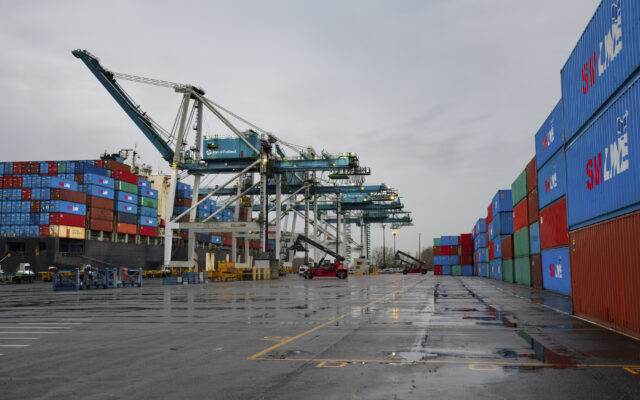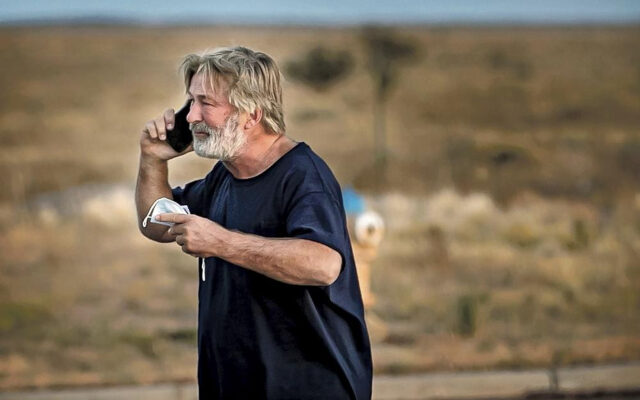Federal Judge Rules BNSF Railway Violated Agreement With Swinomish Indian Tribal Community

SEATTLE (AP) — A federal judge ruled Monday that BNSF Railway intentionally violated the terms of an easement agreement with the Swinomish Indian Tribal Community in Washington state by running 100-car trains carrying crude oil over the reservation.
The ruling in the civil case comes after two BNSF engines derailed on Swinomish land earlier this month, leaking an estimated 3,100 gallons of diesel fuel near Padilla Bay. BNSF operates a rail line through the Swinomish Reservation under a 1991 easement agreement that allows trains to carry no more than 25 cars per day. It also required BNSF to tell the tribe about the “nature and identity of all cargo” transported across the reservation.
In his written order U.S. District Court Judge Robert Lasnik said the railway made a unilateral decision in increasing the number of trains and cars crossing the reservation without the tribe’s consent, The Seattle Times reported.
Lasnik ruled that BNSF “willfully, consciously and knowingly exceeded the limitations on its right of access” from September 2012 to May 2021 “in pursuit of profits.”
A BNSF spokesperson declined to comment to the newspaper on the ruling.
“The tribe takes its agreements very seriously and it expects them to be honored, and we are thankful that BNSF is being held to the promises it made,” Swinomish Indian Tribal Community Chair Steve Edwards said in a statement.
The railroad easement crosses sensitive marine ecosystems over a swing bridge at the Swinomish Channel and a trestle across Padilla Bay within the reservation. The water bodies connect other waters of the Salish Sea, where the tribe has treaty-protected rights to fish.
The tribe learned through a 2011 Skagit County planning document that a nearby refinery would start receiving crude oil trains. It wasn’t until the following year that the tribe received information from BNSF addressing current track usage, court documents show.
The tribe and BNSF discussed an amended agreement, but “at no point did the Tribe approve BNSF’s unilateral decision to transport unit trains across the Reservation, agree to increase the train or car limitations, or waive its contractual right of approval,” Lasnik wrote.
In 2013, BNSF’s in-house counsel cited the railway’s “common carrier obligation to serve its customers” in a meeting with the Swinomish. Under federal law, rail companies are required to provide reasonable freight transportation upon request.
Swinomish counsel pushed back in that meeting, “pointing out that this was not the typical right of way case involving state or local regulation,” Lasnik wrote, “but rather involved limitations arising from a federally-approved easement crossing tribal trust lands established by treaty, the supreme law of the land.
Meanwhile, 100-car trains hauling crude oil from the Bakken Formation in and around North Dakota ran through the reservation.
Bakken oil is easier to refine into the fuels sold at the gas pump and ignites more easily. After train cars carrying Bakken crude oil exploded in Alabama, North Dakota and Quebec, a federal agency warned in 2014 that the oil has a higher degree of volatility than other crudes in the U.S.
The tribe sued in 2015, alleging BNSF was running trains with four times the number of cars permitted under an easement agreement with the tribe.
In 2020, the Ninth Circuit Court of Appeals affirmed an earlier federal court ruling that found BNSF had breached the easement agreement, and the tribe has the right to enforce it. Later that year, BNSF requested permission to move 16 Bakken crude trains each month in each direction across the easement during 2021. The request was denied.
Lasnik found previous intentional easement crossings by BNSF exceeded what was outlined in the agreement, and therefore, the railway “trespassed on Indian lands and is liable for the damages caused by its overburdening of the easement.”
A second phase of the trial will evaluate the tribe’s claim for damages.



